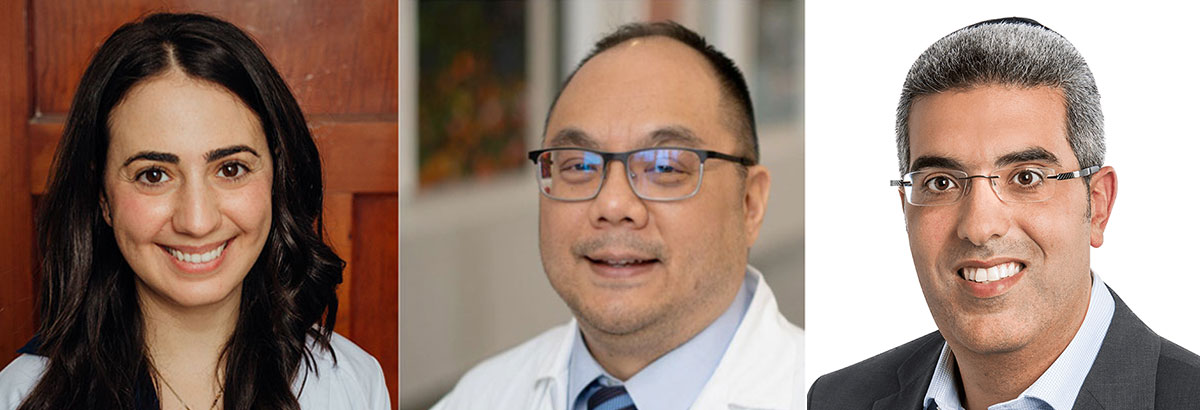COVID-19 impact on cancer patients: MUHC researchers take part in a multinational study

Published in The Lancet, the study reveals cancer-specific factors associated with increased mortality
McGill University Health Centre (MUHC) researchers Dr. Arielle Elkrief, Dr. Nathaniel Bouganim and Dr. Donald Vinh led the Canadian chapter of the COVID-19 and Cancer Consortium (CCC19), which reunites more than 100 researchers internationally working together to understand better the unique effects of COVID-19 on patients with cancer or with a history of cancer.
The consortium published data on more than 900 patients, which showed that people with cancer affected by COVID-19 have a crude death rate of 13 percent. Importantly, the study identified cancer-specific factors associated with increased mortality. Led by Dr. Jeremy Warner from Vanderbilt University, Dr. Brian Rini, from Vanderbilt-Ingram Cancer Center and Dr. Gary H. Lyman, from the University of Washington, this is the largest study and series of data released thus far from a multinational perspective. It was published in The Lancet on May 28.
“We are proud that the MUHC is one of the lead Canadian sites which participated in this study. This work is a great example of collaboration across different specialties and sites,” says Dr. Elkrief, a fellow in Oncology at the MUHC, who spearheaded this initiative across three academic centers in Canada. “This study revealed that patients with cancer had a 13 percent mortality rate, which is more than twice the mortality reported as the global average. It is essential to continue every effort to protect our most vulnerable patients.”
The data in this first report from CCC19, gathered from 928 patients in Spain, Canada and the United States, showed no statistical association between 30-day mortality and cancer treatments, suggesting that surgery, adjuvant chemotherapy and maintenance chemotherapy could continue during the pandemic with “extreme caution.”
The cancer-specific factors associated with increased mortality included having an Eastern Cooperative Oncology Group (ECOG) performance status of two or worse. ECOG is a grading scale for measuring how cancer impacts a patient’s daily living abilities. A score of two designates a patient who is capable of self-care but unable to work and who is up and about more than 50 percent during waking hours.
While an ECOG score of two does not usually preclude a patient with cancer from getting chemotherapy or participating in trials, this study does suggest the need for ongoing vigilance in protecting individuals in this category. Another factor associated with increased mortality was an active cancer status, particularly progressive cancer. The mortality risk also increased with the number of comorbidities, such as hypertension or diabetes, particularly with two or more comorbidities. As is the case with the non-cancer population, mortality increased with age. Mortality was 6 percent for cancer patients younger than 65, 11 percent for those 65–74 and 25 percent for those older than 75. Males also had a higher death rate than females, 17 percent compared to 9 percent.
In addition to findings which will impact management of oncology patients, this study also illustrates the drive at the MUHC and at the Research Institute of the MUHC (RI-MUHC) to help patients, like those affected by cancer.
During the pandemic, when much of the world was on lock-down, MUHC/RI-MUHC researchers mobilized. Drs. Elkrief and Bouganim, specialists in Oncology, and Dr. Vinh, specialist in Infectious Diseases, sought to understand how COVID-19 was affecting patients with cancer, joined their expertise, and collaborated internationally in unprecedented fashion to find these answers.
“These findings will help shape plans for the diagnosis, management and screening of cancer,” says Dr. Vinh.
Learn more: Multinational consortium reports COVID-19 impact on cancer patients
